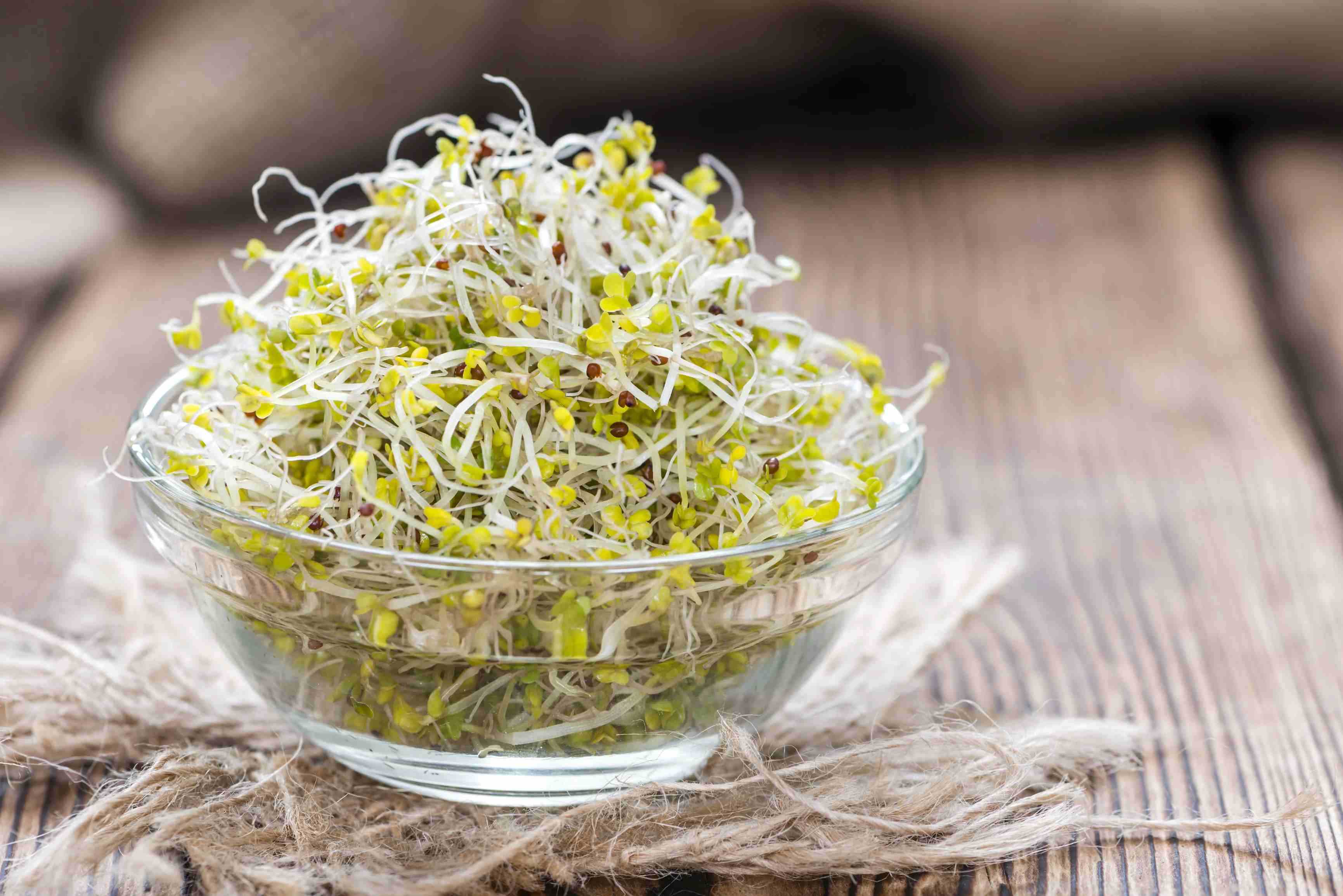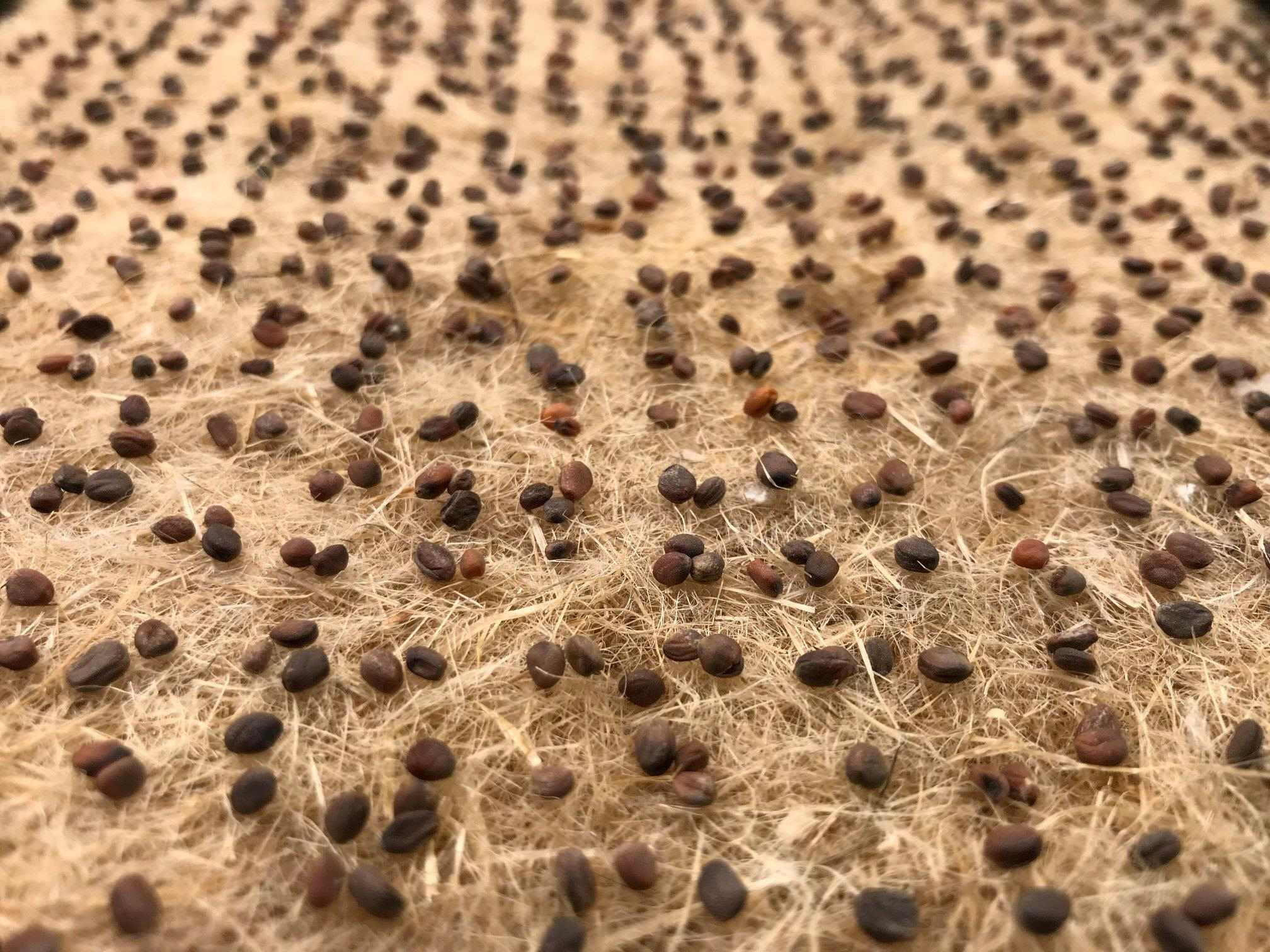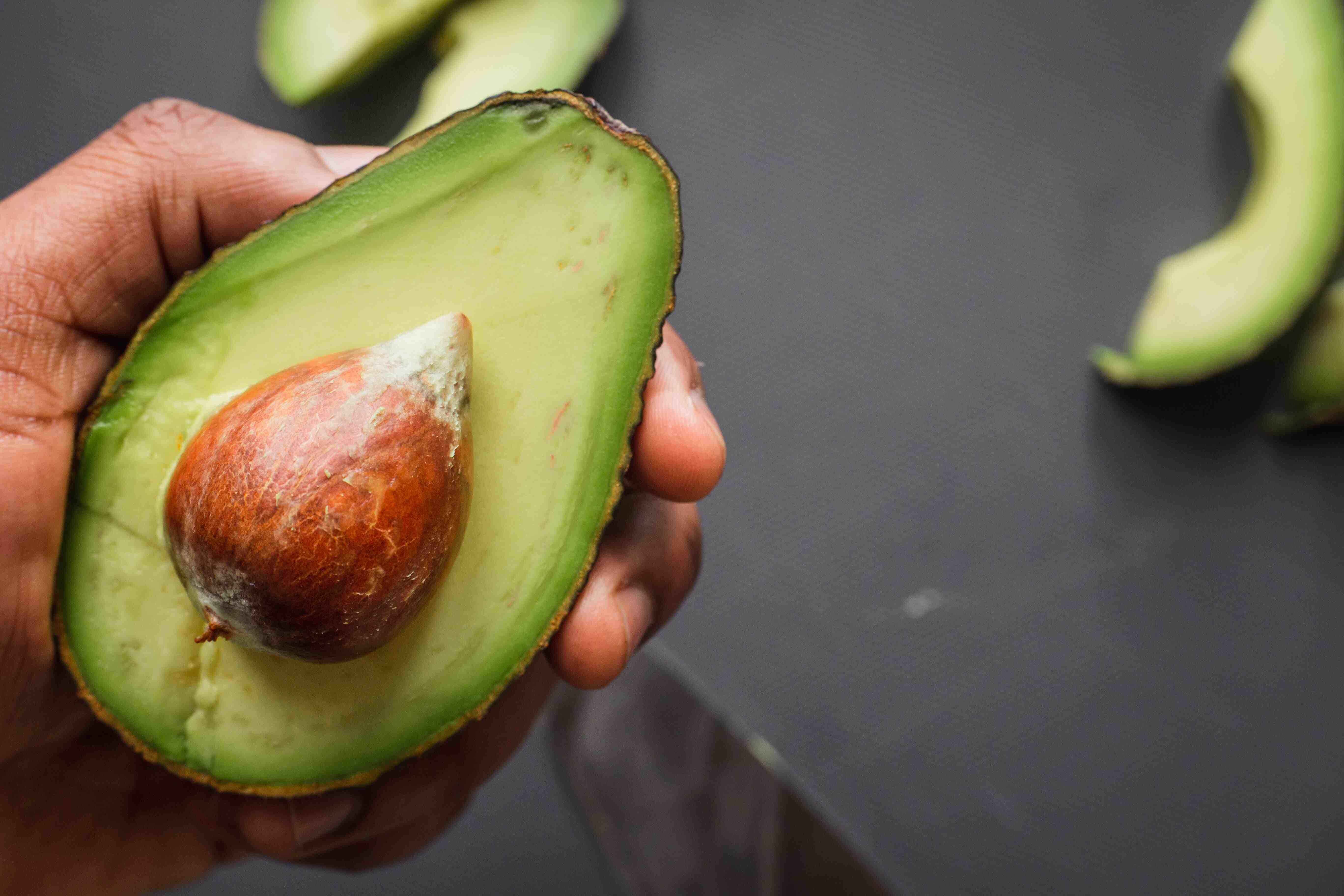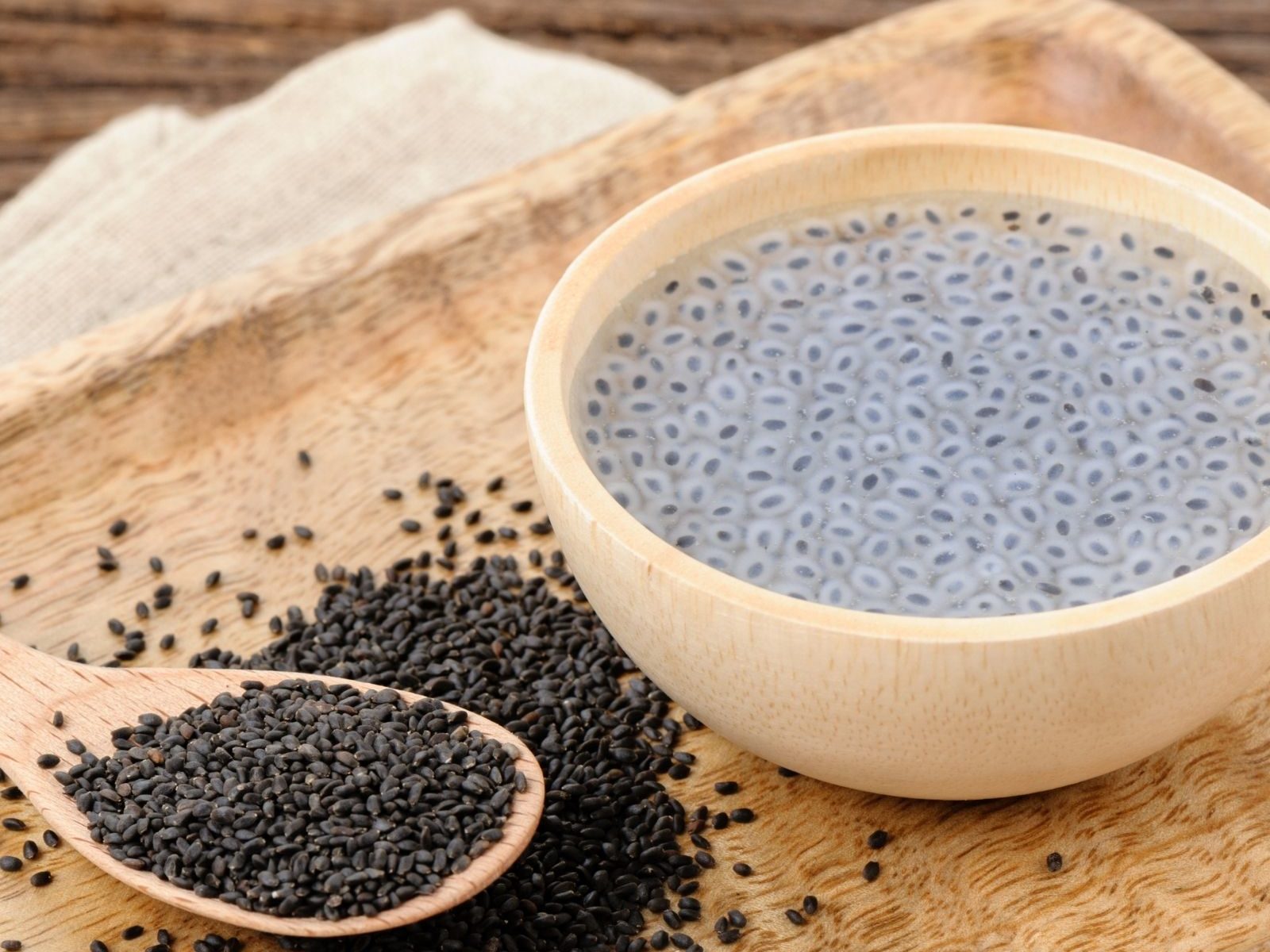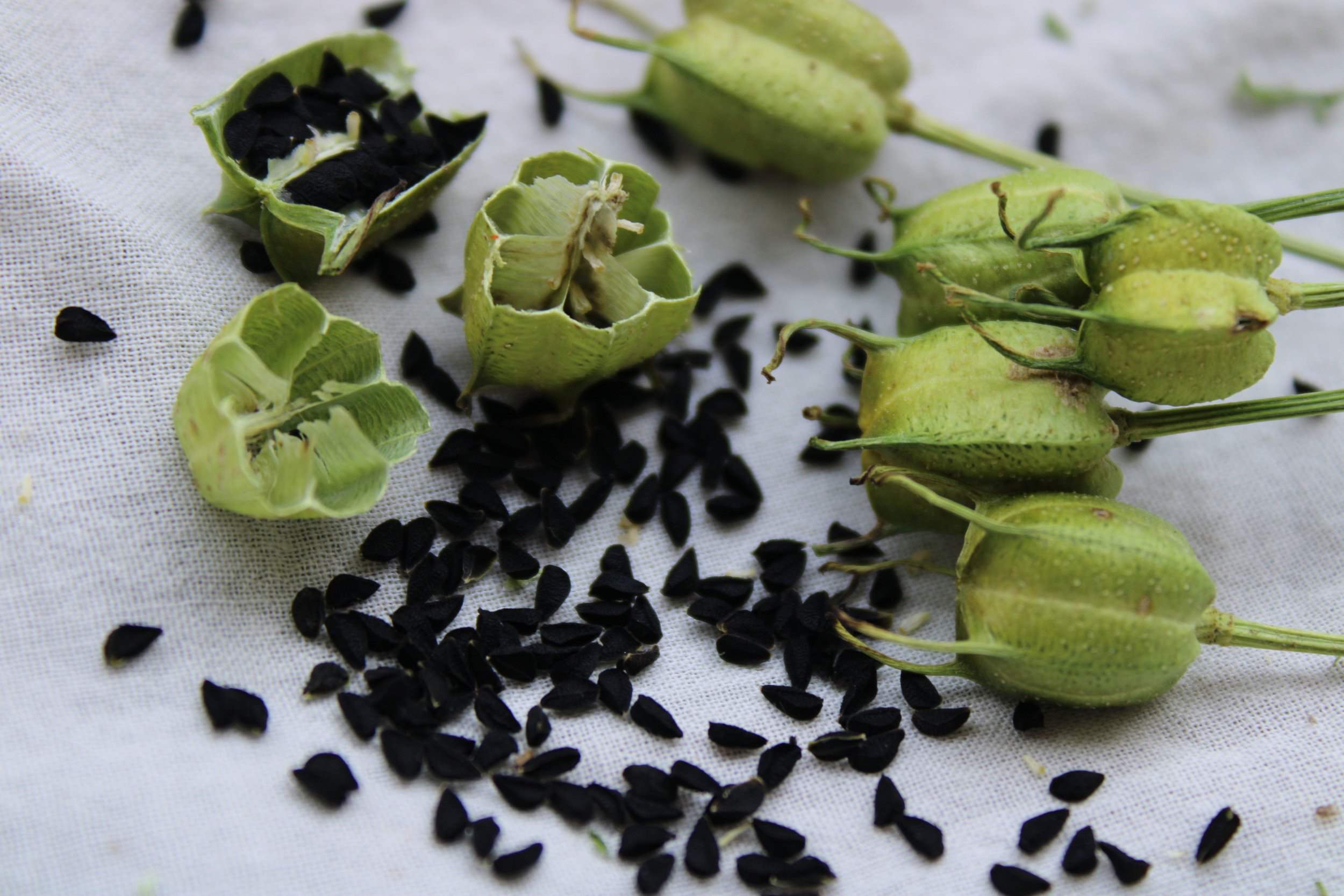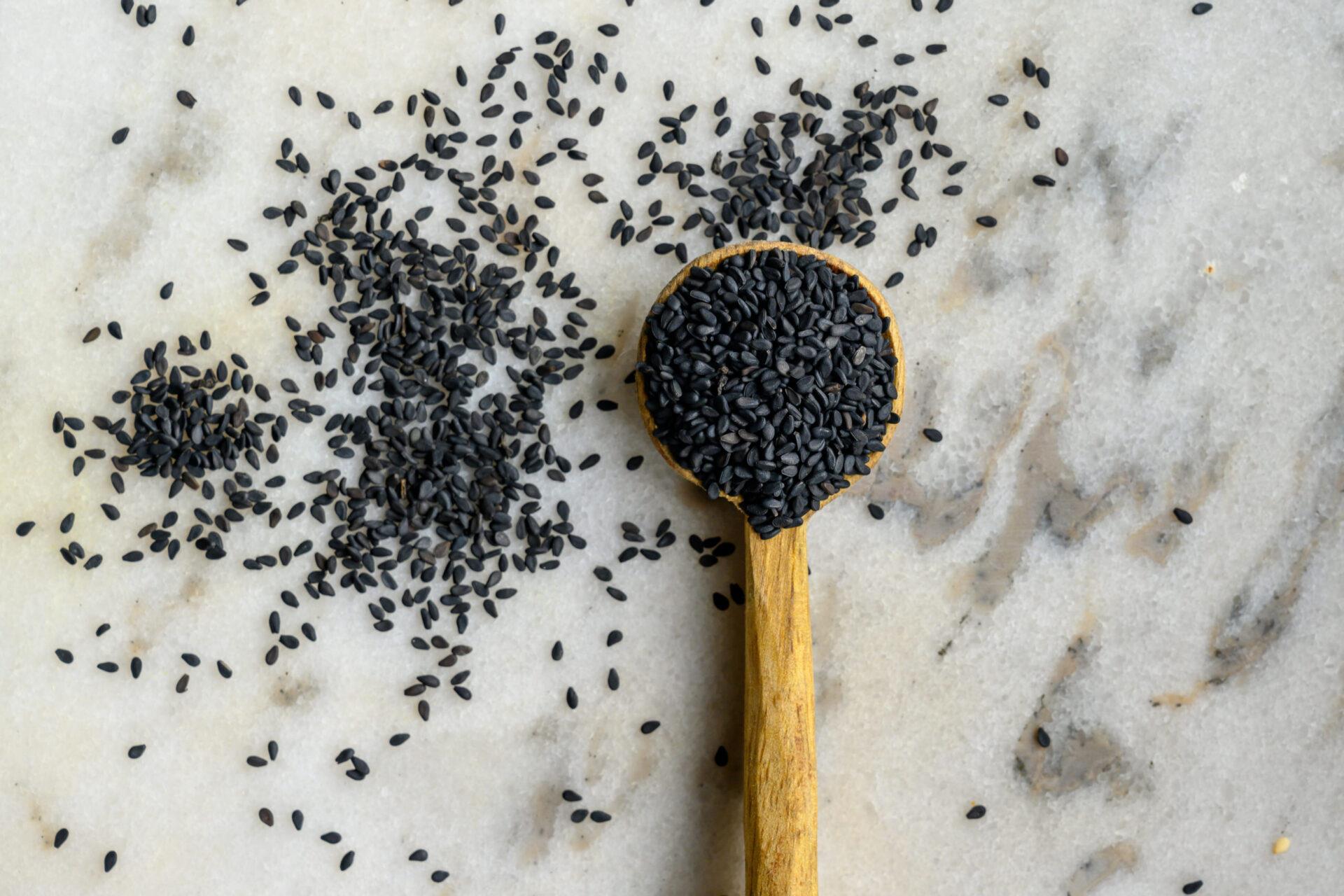Home>Types of Gardening>Edible Gardening>What Are Carom Seeds
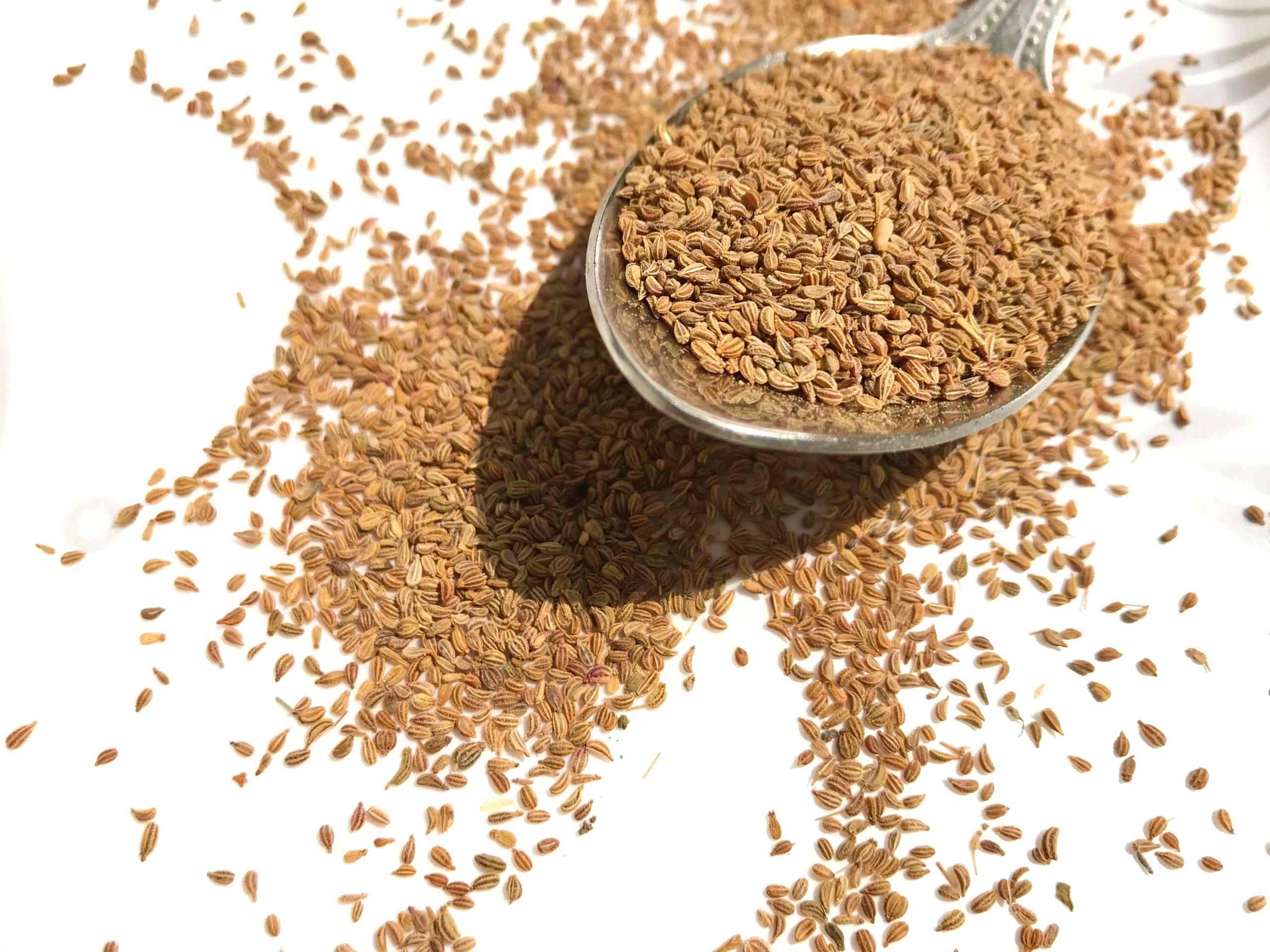

Edible Gardening
What Are Carom Seeds
Published: September 23, 2023
Discover the benefits and uses of carom seeds in edible gardening. Learn how to grow and incorporate this aromatic spice into your homegrown dishes.
(Many of the links in this article redirect to a specific reviewed product. Your purchase of these products through affiliate links helps to generate commission for Chicagolandgardening.com, at no extra cost. Learn more)
Table of Contents
Introduction
Edible gardening provides a fulfilling and sustainable way to bring fresh, nutritious produce to your table. Among the wide variety of plants that can be grown in a garden, carom seeds, also known as ajwain, hold a special place. These tiny, aromatic seeds have been used for centuries in cooking and traditional medicine.
Carom seeds are derived from the Ajwain plant, scientifically known as Trachyspermum ammi. Native to the Indian subcontinent, these seeds are a common ingredient in Indian, Pakistani, and Middle Eastern cuisines. They have a distinctive taste, combining flavors of thyme, anise, and oregano, which adds depth and complexity to dishes.
Beyond their culinary uses, carom seeds are highly valued for their medicinal properties. They contain essential oils and bioactive compounds that contribute to various health benefits, making them an essential ingredient in traditional herbal medicine practices.
Whether you’re an experienced gardener or a novice in the world of edible gardening, incorporating carom seeds into your garden can be a rewarding experience. This article will delve into the culinary uses, medicinal properties, and precautions associated with carom seeds. By the end, you’ll have a comprehensive understanding of what makes carom seeds an invaluable addition to any edible garden.
Definition of Carom Seeds
Carom seeds, also known as ajwain, are the seeds of the Ajwain plant (Trachyspermum ammi). These small, oval-shaped seeds are light brown in color with a pungent and distinctive aroma. Commonly used in Indian, Pakistani, and Middle Eastern cuisines, carom seeds have a strong, earthy flavor with hints of thyme, anise, and oregano.
The Ajwain plant is a member of the Apiaceae family, which includes carrots, celery, and parsley. It is an annual herb that grows up to 2 feet in height, with feathery leaves and small, whitish flowers. The seeds are the most prized part of the plant, known for their culinary and medicinal properties.
In culinary applications, carom seeds are typically used in small quantities. They are often added to various dishes and breads for their flavor-enhancing properties. The seeds can be used whole or crushed, releasing their potent aroma and flavor. In addition to their culinary uses, carom seeds are also used in traditional medicine practices for their therapeutic benefits.
Carom seeds are known for their digestive properties and have been used for centuries in Ayurvedic medicine. They primarily contain thymol, a compound known for its antifungal, antimicrobial, and antioxidant properties. Thymol is responsible for many of the health benefits associated with carom seeds.
Overall, carom seeds are a versatile ingredient that adds a unique flavor to dishes and provides various health benefits. Their distinctive taste and medicinal properties make them a valuable addition to any culinary or medicinal garden.
Culinary Uses of Carom Seeds
Carom seeds, also known as ajwain, are a staple ingredient in Indian, Pakistani, and Middle Eastern cuisines. They have a strong, pungent flavor that adds depth and complexity to dishes. Here are some popular culinary uses of carom seeds:
- Spice blends: Carom seeds are commonly used in spice blends such as garam masala, curry powder, and chaat masala. These spice blends are used to enhance the flavor and aroma of various dishes.
- Tempering: Carom seeds are often tempered in hot oil or ghee before adding them to dishes. This tempering process, known as “tadka” in Indian cooking, releases the essential oils in the seeds, intensifying their flavor.
- Breads and flatbreads: Carom seeds are a popular addition to bread and flatbread recipes. They are often added to dough for naan, paratha, or roti, giving them a distinct flavor.
- Curries and stews: Carom seeds are commonly used in curries and stews to enhance the overall flavor profile. They pair well with vegetables, legumes, and meats, adding a warm and aromatic touch.
- Pickles: Carom seeds are sometimes added to pickling spice mixes or directly to pickled vegetables. They contribute a tangy and slightly spicy flavor to pickles, enhancing their taste.
- Soups and sauces: Carom seeds can be added to soups, broths, and sauces to infuse them with their unique flavor. They work particularly well in lentil soups and tomato-based sauces.
- Beverages: Carom seeds can be used to flavor beverages such as herbal teas and lassis. They provide a refreshing and aromatic element to these drinks.
When using carom seeds in your cooking, it is best to crush or grind them slightly to release their essential oils and maximize their flavor. However, be cautious not to overpower your dishes as carom seeds have a strong taste. Start with small quantities and adjust according to your preference.
Medicinal Properties of Carom Seeds
Carom seeds, also known as ajwain, have been used for centuries in traditional medicine for their numerous health benefits. These seeds are packed with essential oils and bioactive compounds that contribute to their medicinal properties. Here are some of the key medicinal properties of carom seeds:
- Digestive aid: Carom seeds are well-known for their digestive properties. They contain an active compound called thymol, which helps stimulate the production of digestive enzymes. Consuming carom seeds can aid in digestion, relieve flatulence, and alleviate bloating.
- Relief from respiratory issues: The essential oils present in carom seeds have expectorant and antimicrobial properties, making them beneficial for respiratory health. They can help relieve congestion, cough, and asthma symptoms.
- Pain relief: Carom seeds possess analgesic properties, which can help alleviate pain and inflammation. They are often used topically as a poultice to relieve joint pain, arthritis, and muscle soreness.
- Antimicrobial effects: Carom seeds exhibit antimicrobial activity against certain bacterial and fungal strains. They can be used as a natural remedy for mild infections and to promote overall oral health.
- Improves menstrual health: Carom seeds are believed to have properties that can help regulate menstrual cycles and alleviate menstrual pain. They are often consumed in the form of herbal tea to relieve discomfort associated with menstruation.
- Boosts metabolism: The active compounds in carom seeds can help boost metabolism and aid in weight management. They are believed to increase the secretion of gastric juices, which can improve digestion and enhance nutrient absorption.
- Anti-inflammatory properties: Carom seeds contain anti-inflammatory compounds that can help reduce inflammation in the body. This makes them beneficial for various inflammatory conditions such as arthritis and inflammatory bowel diseases.
While carom seeds have been traditionally used for their medicinal properties, it’s important to note that they should not be used as a substitute for professional medical advice. If you have any specific health concerns or conditions, it is best to consult with a healthcare professional before incorporating carom seeds into your lifestyle.
Side Effects and Precautions
Carom seeds, also known as ajwain, are generally safe to consume in moderate amounts. However, it’s essential to be aware of potential side effects and precautions associated with their use. Here are some important considerations:
- Allergic reactions: Some individuals may be allergic to carom seeds. If you have a known allergy to plants in the Apiaceae family, such as celery or parsley, it’s best to avoid carom seeds or consult with an allergist before consuming them.
- High doses: Consuming excessively high amounts of carom seeds may cause digestive issues such as heartburn or acidity. It’s important to use them in moderation and follow recommended guidelines.
- Pregnancy and breastfeeding: Pregnant and breastfeeding women should exercise caution when consuming carom seeds. While they are generally safe, it is advisable to consult with a healthcare professional to ensure they are suitable for individual circumstances.
- Drug interactions: Carom seeds may interact with certain medications, including blood thinners and anticoagulants. If you are taking any medications, it’s important to consult with your healthcare provider before incorporating carom seeds into your diet.
- Delayed clotting: Carom seeds may have blood-thinning properties and may affect blood clotting. If you have a bleeding disorder or are scheduled for surgery, it’s advisable to avoid consuming carom seeds or consult with your healthcare provider beforehand.
- Children and infants: While carom seeds are generally safe for most individuals, it is recommended to avoid giving them to infants and very young children, as their digestive systems are still developing.
- Quality and storage: To ensure the safety and efficacy of carom seeds, it’s important to purchase them from reputable sources. Store them in an airtight container in a cool, dry place away from direct sunlight to maintain their freshness and potency.
While carom seeds offer various health benefits, it’s important to exercise caution and use them responsibly. If you experience any adverse reactions or have concerns about their use, it’s best to consult with a healthcare professional.
Conclusion
Carom seeds, also known as ajwain, are a remarkable addition to any edible garden. These small but mighty seeds offer a unique flavor profile that adds depth and complexity to a wide range of culinary dishes. Whether you’re an avid home cook or a professional chef, incorporating carom seeds into your recipes can elevate your culinary creations to new heights.
Beyond their culinary uses, carom seeds have been valued for centuries for their medicinal properties. From aiding digestion to relieving respiratory issues, these seeds have a long-standing reputation in traditional medicine. However, it’s important to remember that while carom seeds can offer health benefits, they should not replace professional medical advice.
As with any ingredient, it’s crucial to use carom seeds in moderation and be aware of any potential allergies or interactions with medications. It’s always a good idea to consult with a healthcare professional if you have specific health concerns or if you are pregnant, breastfeeding, or taking medications.
Incorporating carom seeds into your edible garden not only provides you with a source of fresh and flavorful seeds, but it also allows you to connect with the rich tradition and culture associated with these seeds. Growing your own carom seeds allows you to have control over their quality and ensures that you are using them at their peak freshness.
Whether you’re using carom seeds in your favorite curries, breads, or even as a natural remedy for digestive issues, their aromatic and medicinal properties make them a versatile and valuable addition to any kitchen and garden. So, embrace the flavors and benefits of carom seeds and enjoy the culinary and health-enhancing journey they offer.
